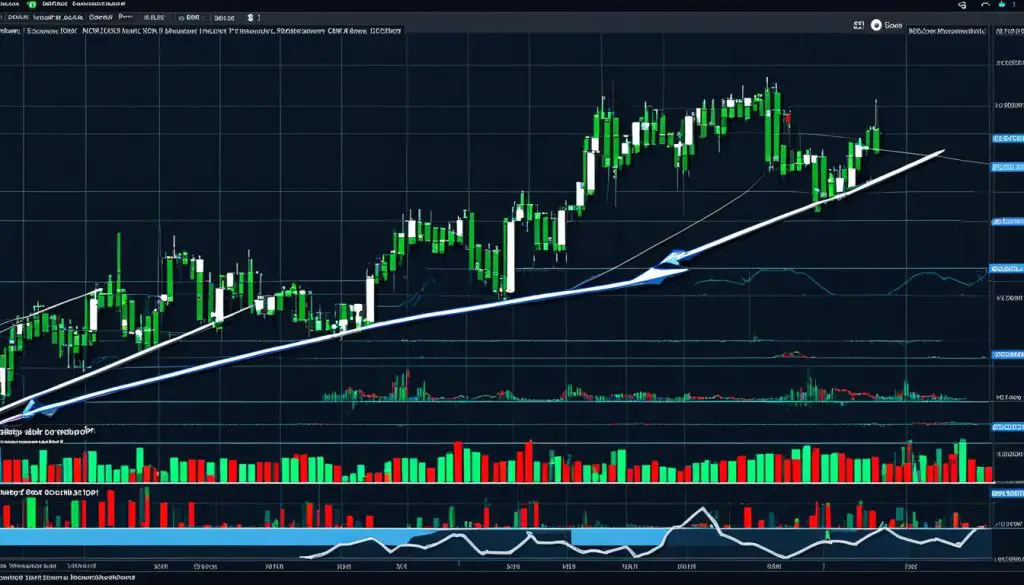The escalation and subsequent burst of the Mississippi Bubble marked a pivotal chapter in economic history, etching its name as one of the most infamous financial crises ever to unfold. Originating in 18th century France, the Mississippi Bubble financial crisis emerged as a consequence of speculative trading and fiscal mismanagement, unraveling an economic debacle of staggering proportions. The aftermath of its burst still stands as a cautionary tale highlighting the potent economic consequences that speculative bubbles can inflict upon a nation’s financial health and societal wealth.
This tale of speculation began with ambition and optimism, as the Mississippi Company, set up to develop the French territories across the Atlantic, became an emblem of national pride and potential wealth. Delving into the events leading to this crisis offers insight into the fragile nature of economic systems and the repercussions that follow when they are strained beyond their limits.
The Genesis of the Mississippi Bubble
The precipitous rise and eventual collapse of the Mississippi Bubble is a cornerstone event in the history of speculative bubbles. In the wake of King Louis XIV’s death in 1715, France’s economy foundered under the weight of a crushing national debt, a debt compounded by costly wars and economic mismanagement. The resultant fiscal turmoil prompted the Duke of Orléans, then regent, to resort to unconventional measures.
With the national treasury at the brink, John Law, a visionary yet controversial figure, emerged as the architect behind a scheme that would radically transform France’s financial landscape. Law’s proposal to introduce paper money aimed not only to alleviate the liquidity crisis but also to fuel economic growth. These events mark the embryonic stages of the John Law Mississippi Bubble saga.
Founding the Banque Générale, John Law took a pivotal step towards mitigating the staggering fiscal chaos. His subsequent acquisition and overhaul of the Mississippi Company, formally known as the Compagnie d’Occident, created an establishment with the ambition to operate on an unrivaled scale. Below outlines the company’s expansion to encompass France’s vast debt and secure monarchical trading privileges:
- Establishment of Banque Générale – Introduction of paper currency
- Acquisition of the Mississippi Company – Charter granted by the crown
- Expansion of trading rights – Monopoly in French colonies
- Absorption of national debt – Bonds issued against revenues
This monumental expansion established the Mississippi Company as a beacon of hope for the beleaguered French economy, envisaging an era of prosperity through its newly acquired trading monopoly. Mississippi Bubble history reverberates with the speculative fervor incited by Law’s audacious plans, which promised grandiose profits and economic invigoration but ultimately steered towards an unsustainable bubble.
| Year | Development | Impact on Economy |
|---|---|---|
| 1715 | Death of Louis XIV | France plunged into debt crisis |
| 1716 | Founding of Banque Générale | Introduction of paper currency |
| 1717 | John Law acquires Mississippi Company | Debt consolidation into company bonds |
| 1719 | Company granted further privileges | Speculative interest escalates |
The convergence of John Law’s unorthodox economic theories with the desperately indebted state of France ignited a period of intense speculation and grandiosity—the Mississippi Bubble. It was a convergence that would render the impending crash all the more cataclysmic for the nation’s economy.
The Surge of the Mississippi Company
As the 18th century progressed, the Mississippi Company, under the energetic direction of John Law, became the linchpin of an unprecedented investment boom in French Louisiana. The promise of vast natural resources coupled with monopolistic trade rights fueled a speculative frenzy that would become a defining moment in the French financial system.
Exclusive Trading Rights and Expansion
The Compagnie des Indes, first known as Compagnie d’Occident, was granted authoritative trading privileges that effectively ruled over the profitable region of French Louisiana. Under Law’s stewardship, the Mississippi Company’s influence ballooned, facilitating dominance over crucial commodities like tobacco and initiating an era of aggressive colonial commerce.
Public Mania and Share Prices Escalation
Tales of opulent landscapes laced with gold along the Mississippi River ignited the imaginations and wallets of the French populace and European investors alike. This Mississippi River bubble, driven by the frenetic pursuit of Mississippi bubble stock, saw the Compagnie des Indes’ share prices spiral from a mere 500 livres to an astronomical 18,000 livres.
Integration of France’s Financial Operations
In an audacious move that intertwined banking with state financial operations, Banque Générale, also spearheaded by Law, commandeered monetary control of France. This consolidation allowed a singular entity to direct the flow of money, taxes, and international trade policies, embedding the Mississippi Company at the core of the French financial system.
Here is a breakdown of how the Mississippi Company’s share prices reflected the speculative frenzy and subsequent investment boom:
| Year | Share Price (livres) | Event |
|---|---|---|
| 1719 | 500 | Speculation begins |
| 1720 (early) | 10,000 | Prices peak |
| 1720 (mid) | 18,000 | Apex of the bubble |
| 1720 (late) | Decline begins | Confidence wanes |
John Law’s Financial Innovations
At the dawn of the 18th century, John Law introduced groundbreaking financial concepts to the French economy. Identifying the inherent instability in the metallic currency system of the time, Law championed the idea of using paper banknotes as a superior alternative. This innovative approach promised a more stable and controlled monetary framework capable of fostering expanded trade and economic activity. Law’s proposals, influenced by advanced economic theories of money supply and demand, were ahead of their time and marked the beginning of a major shift in the French financial landscape.
At the heart of Law’s vision was the Banque Générale, which he established to put his financial theories into practice. The bank initially operated on the use of both metallic coins and paper money, but the emphasis gradually shifted towards paper currency as a means of improving commerce and trade within France. Below is a comparative table highlighting the features of metallic currency versus paper banknotes, reflecting the transformative changes Law proposed.
| Characteristics | Metallic Currency | Paper Banknotes |
|---|---|---|
| Material | Gold and Silver | Paper |
| Stability | Dependent on metal reserves | Controlled by monetary policy |
| Inflation Control | Challenging during scarce supply | Easier with regulated issuance |
| Commerce Impact | Limiting due to finite resources | Promotes growth and liquidity |
| Ease of Transaction | Bulky and hard to transport | Lightweight and portable |
Law’s monetary reform aimed to provide a stable basis for France’s economy, which had been weakened by incessant wars and financial mismanagement. His advocacy for paper currency ultimately stood on the premise that it could bolster commercial activity and economic expansion, something the traditional reliance on metallic currency failed to achieve due to its limitations in supply and the practical difficulties associated with its use.
- Foundation of Banque Générale: Emblematic of a new financial era.
- Advantage of Paper Banknotes: Offering a solution to the economic limitations presented by scarce metallic currency reserves.
- Impact on Trade: Facilitating a smoother exchange of goods and services across the nation.
Law’s innovations were not without criticism; yet, they incontrovertibly altered the course of French monetary policy and have since been recognized as precursors to modern economic thought. From an era where economies hinged on the scarcity of precious metals, John Law steered France towards embracing a system that highlighted the potential benefits of a regulated paper economy, placing him indelibly in the annals of financial history.
Economic Impact of Inflation and Speculation
The unfolding of the Mississippi bubble laid bare the virulent effects of flawed monetary policy and rampant speculation. When John Law’s system failed, it led not only to a stock market crash but also initiated a period of hyperinflation, delivering a harsh blow to France’s economy and sending shockwaves throughout European financial systems.
Effects of Law’s Monetary Policies
Law’s monetary experimentation with paper currency as a means to bolster France’s economy resulted in severe hyperinflation that the existing pool of metallic reserves could not sustain. The over-issuance of banknotes, originally meant to simulate economic growth, spiraled out of control, leading to rampant inflation that rapidly devalued the paper currency and eroded public trust in the nation’s financial stability.
Consequences on French and European Economies
The collapse of the Mississippi bubble, seen as the first major stock market crash, ushered in significant economic consequences. Financial operations ground to a halt as investors and the state grappled with the shock of intertwined company and governmental finances unraveling. The economic distress extended beyond France’s borders, affecting European economies that had eagerly invested in the speculative frenzy, leaving many in a state of financial disrepair.
Why the Mississippi Bubble Burst
The catastrophic end of the Mississippi Bubble is a classic example of the dangerous interplay between investor panic and the fragile nature of financial trust. A domino effect of key factors, such as a widespread bank run, liquidity crisis, and a pervasive loss of confidence, led to an economic catastrophe that not only rattled France’s market but also sent waves of economic turmoil throughout Europe.
The Rush for Liquidity and Loss of Confidence
In an ominous sign of an impending financial disaster, investors hastened to liquidate their assets amidst escalating fears. The intensified scramble for liquidity resulted in a severe devaluation of shares and subsequent onrush of sell-offs. Despite the Mississippi Company’s significant role in France’s economy, the overwhelming demand for physical currency swiftly eroded trust in its capabilities, spotlighting the inherent risks of speculative investment.
Government Intervention and Failed Recovery Measures
Aiming to curb the escalating crisis, the French government swiftly enacted intervention strategies. In the vein of recovery measures, authorities pledged to uphold the elevated share values, striving to restore normalcy and investor confidence. Nevertheless, these interventions fell short as they could not reverse the rampant mistrust. The result was a stark tableau of France’s depressed economy, struggling under the weight of uncontrollable market forces and investor dissatisfaction.
In essence, the failure lay in the disconnect between optimistic governmental promises and the harsh financial realities on the ground. Hopes for a managed recovery were eclipsed by the immutable laws of supply and demand, with a market overly inflated by speculation unable to sustain itself in the absence of real economic growth.
The consequences of these mechanisms still resonate in modern financial discussions, underlining the vitality of maintaining prudential regulation, investor scrutiny, and transparent economic practices to avoid the spirals that can lead to ruinous market collapses.
Aftermath and Economic Consequences
As the dust settled on the financial landscape post-Mississippi Bubble, the French economy was left reeling from the economic consequences. Authorities were compelled to take drastic measures for debt consolidation, balancing the immediate need for stabilizing the economy with the long-term requirement of reforming monetary policies. The fallout included both direct and indirect repercussions, some lingering for decades after the initial crash. Increased taxation emerged as one of the immediate, but unpopular, remedies, while the financial aftermath revealed the inherent weaknesses of the ancien régime’s economic structure.
France’s fiscal response to the crisis was characterized by a series of complex maneuvers aimed at reducing the mountain of public debt. Traditional approaches to debt consolidation were implemented, including the amalgamation of various debts into new loans with more favorable terms. However, these strategies were not without their drawbacks, often resulting in public discontent due to the heavier tax burdens they imposed.
| Economic Indicator | Pre-Bubble Period | Post-Bubble Period |
|---|---|---|
| Average National Debt | Lower due to wartime economies | Substantial increase due to deficit spending |
| Public Confidence | High due to speculative boom | Severely diminished following the crash |
| Tax Revenue | Unstable, heavily reliant on indirect taxation | Growth in direct taxes; introduction of vingtième |
| Gold and Silver Reserves | Sufficient to back currency | Depleted; unable to support the issuance of paper money |
Amid the pervasive climate of financial instability, the necessity for robust liquidity and sound economic governance became starkly apparent. The administration faced a Herculean challenge in reformulating the country’s fiscal economy, while simultaneously addressing the socioeconomic disparities exacerbated by the bubble’s burst. This period served as a testament to the perils of unmanaged economic expansion, predicated on unfounded optimism and lack of regulatory oversight.
- Short-Term Relief: Temporary suspension of debt payment to prevent immediate collapse
- Institutional Reforms: Measures to restore confidence in banking and currency systems
- Economic Policies: Overhaul of policies to prevent recurrence of unchecked speculative activities
The legacy of the Mississippi Bubble lies not only in its immediate economic consequences but also in its long-term influence on economic thought and policy-making. The financial tempest that swept through France in the aftermath of the bubble’s collapse carried lessons that echoed through the corridors of history, underscoring the importance of prudent fiscal management and transparent monetary policies in the perpetuation of economic stability.
Lessons Learned from the Mississippi Bubble
The Mississippi Bubble, a tumultuous chapter in economic history, left indelible marks establishing stringent cautionary principles for modern fiscal policy and monetary policy. As the world reflects on the rubble of this financial calamity, historical economic lessons are extrapolated, serving as critical minarets guiding contemporary economic governance. Notably, the crisis highlighted the devastating outcomes that can ensue when speculative bubbles are allowed to inflate without restraint and when fiscal apparatus is managed with imprudence. The epoch revealed the intricate machinery of economies and the perpetual need for robust policy frameworks to safeguard them.
Through the lens of hindsight, it’s recognized how reckless augmentation of the money supply, typified by the French government’s excessive printing of paper money, can lead to a catastrophic devaluing of currencies. This historical precedent underscores the significance of maintaining currency values and the enormity of the consequences when they are not upheld. The Mississippi Bubble stands as a stark emblem of the perils of overextension in credit and debt, warning modern economies to navigate the sleek precipice of ambition with the grounding weight of fiscal prudence.
Moreover, this financial implosion has entrenched a heightened awareness of the gravity of speculative bubbles and reinforced the importance of discerning, responsible stewardship over both fiscal and monetary platforms. The Mississippi Bubble teaches that economic stability is not solely within the ambit of chance but also the product of learned circumspection and deliberate, cautious policy-making. As nations and economies strive to evolve and flourish, they carry with them the lessons scribed in the ledgers of France’s 18th-century financial upheaval, heeding the admonitions wrought from a time when speculation and debt wrought ruin upon a nation’s doorstep.
FAQ
The Mississippi Bubble was a financial crisis that occurred in the early 18th century in France. It was characterized by the speculative investment in the shares of the Mississippi Company, excessive printing of paper money, and resulting hyperinflation and economic collapse.
John Law was a Scottish financier who played a central role in developing the Mississippi Bubble. He established the Banque Générale in France and later took control of the Mississippi Company. Law’s promotion of paper currency and aggressive expansion led to the bubble’s inflation and eventual burst.
The Mississippi Bubble started as a result of the critical state of France’s economy following King Louis XIV’s death. France was deeply in debt, and John Law suggested the creation of paper money to stimulate growth. His Mississippi Company absorbed a large portion of the national debt and was granted exclusive trading rights, leading to rampant speculation and the bubble’s growth.
The economic consequences of the Mississippi Bubble were severe. It led to hyperinflation, a stock market crash, loss of confidence in the financial system, and a significant downturn in the French and other European economies. The aftermath included debt consolidation, increased taxation, and a long period of economic recovery for France.
The share prices of the Mississippi Company experienced massive inflation, driven by speculative frenzy. From initial valuations around 500 livres, the prices skyrocketed to as high as 18,000 livres before the collapse of the bubble.
The Mississippi Bubble burst due to a liquidity crisis and loss of investor confidence. The inability to redeem shares for gold, the excessive inflation of share prices, and the apparent overvaluation of the company led to a rapid decline in the financial system and a market crash.
In an effort to stabilize the situation, the French government promised to back the Mississippi Company’s shares at their peak valuation. However, these efforts, alongside other interventions, failed to prevent a financial disaster, as the interconnectedness of the company with the state’s finances was too vast.






